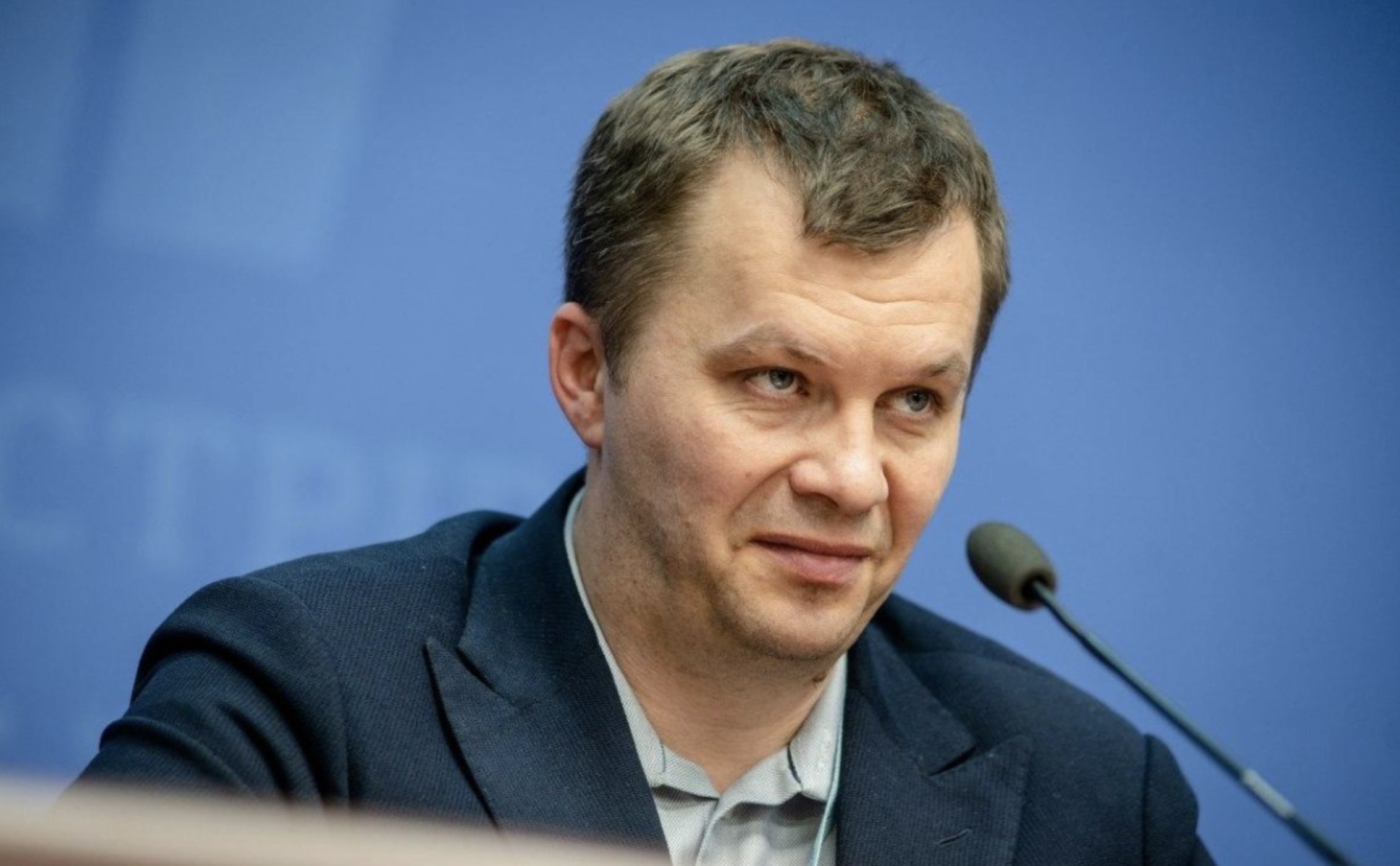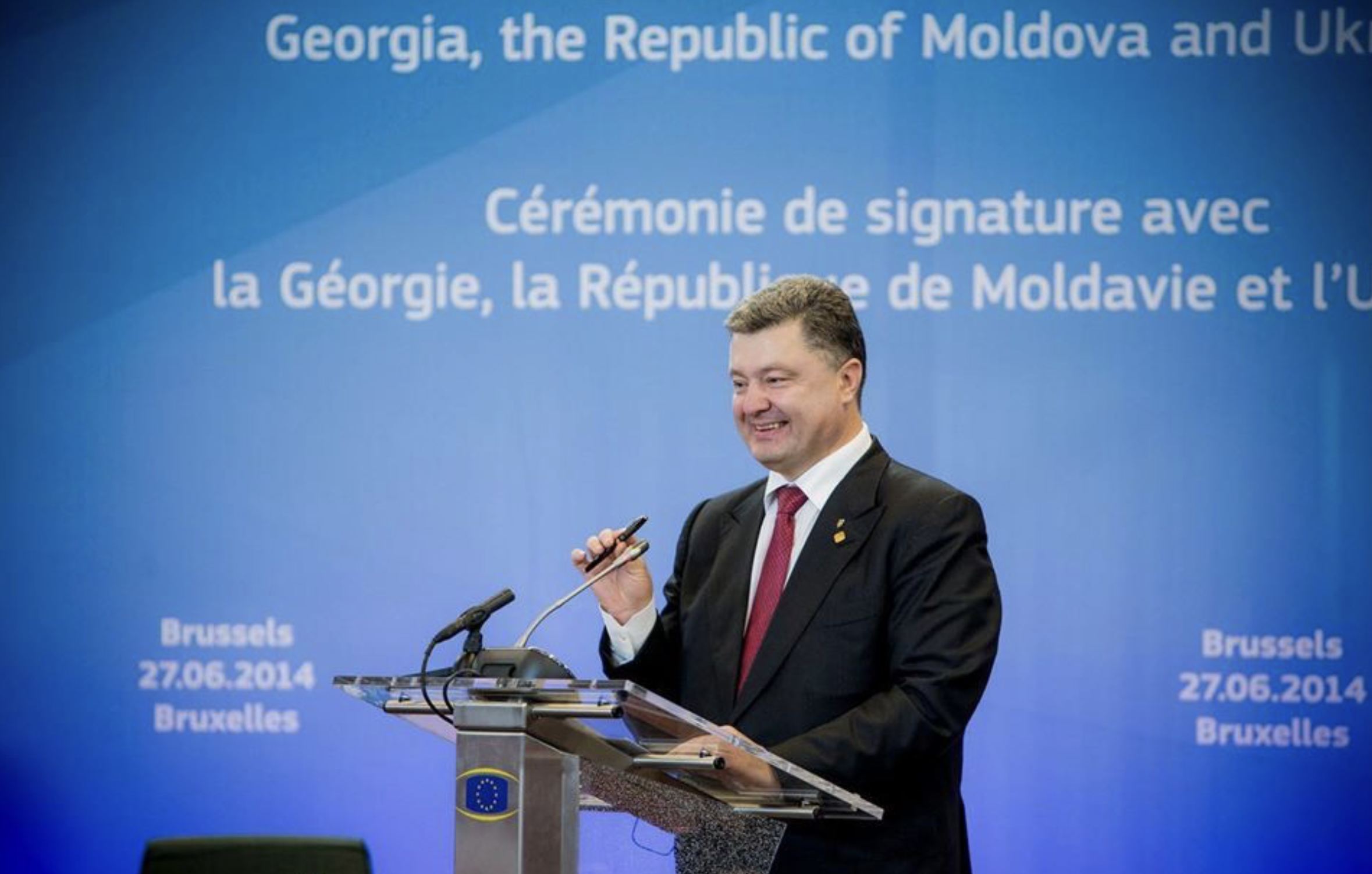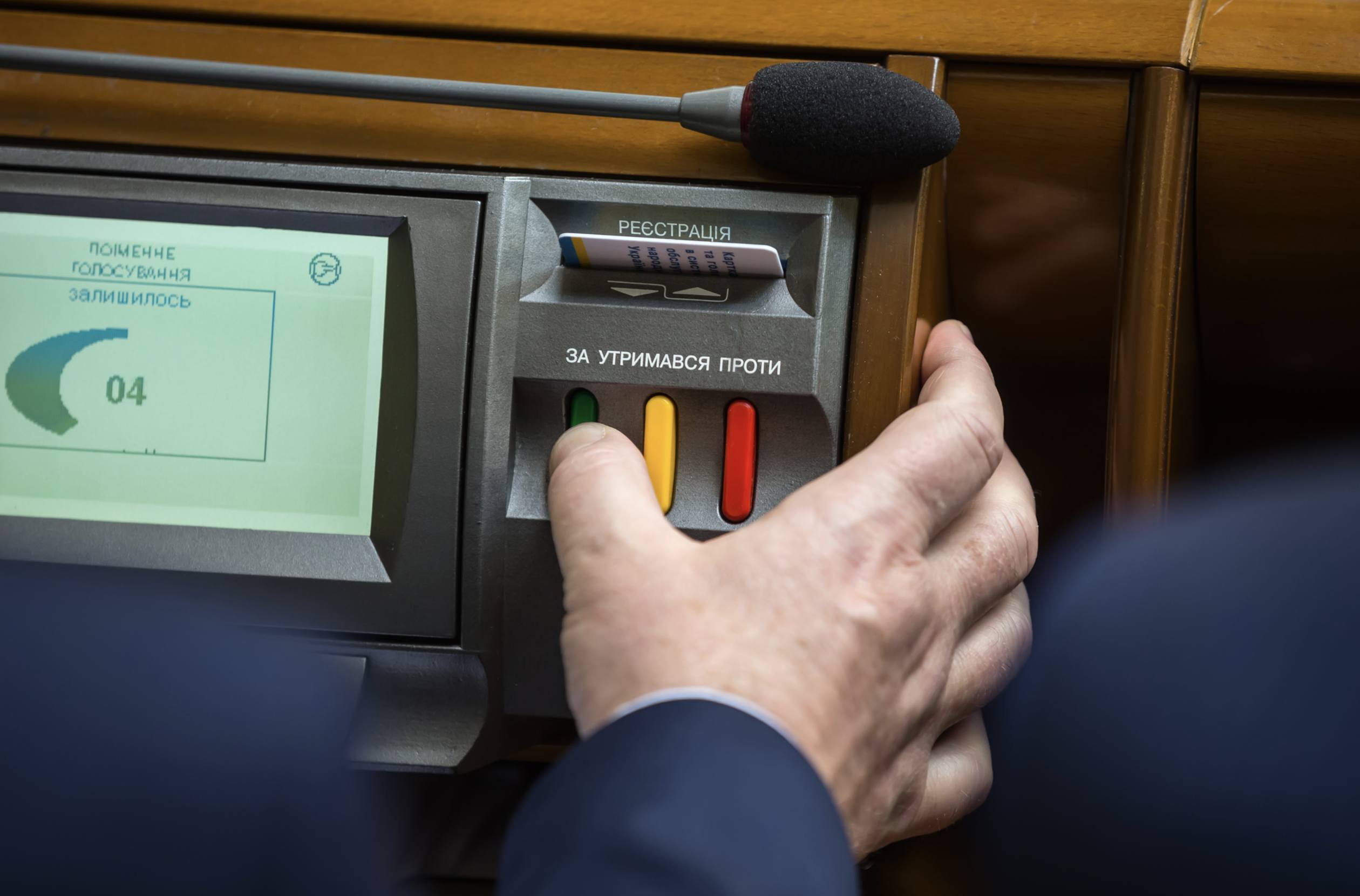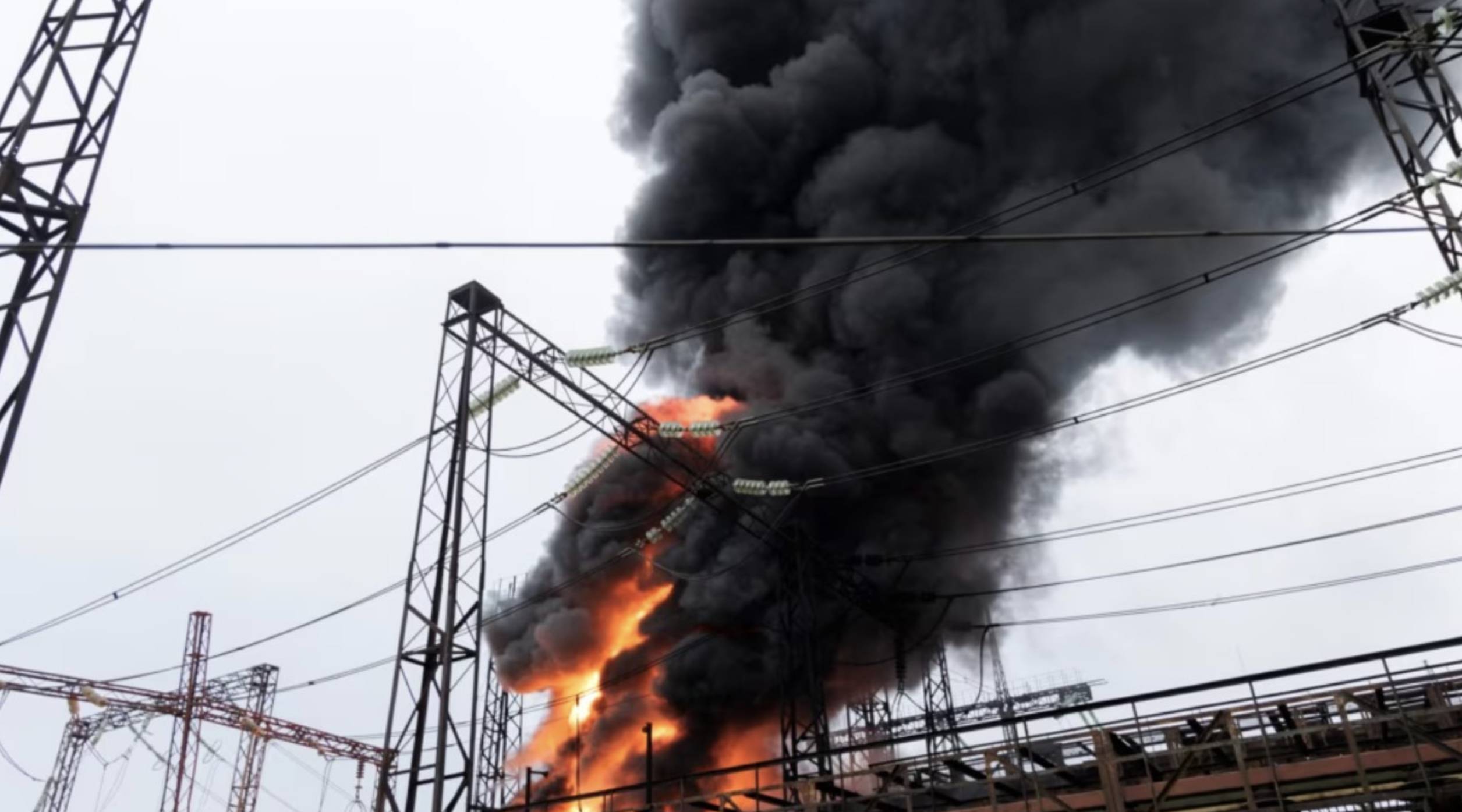Vitaliy Dudin is one of those lawyers for whom the idea of fighting for justice defines his professional practice. This shouldn’t surprise us, as it is the foundation of any legal profession. However, what makes Vitaliy an outstanding lawyer is his understanding that achieving individual justice is impossible without a collective struggle for rights. As he himself says, labor rights are collective rights.
Vitaliy not only defends workers’ rights but also teaches them to advocate for their rights through the LABOR DEFENSE course. Moreover, he actively contributes to strengthening and expanding the movement of independent trade unions in Ukraine as part of his work in the Sotsialniy Rukh (Social Movement).
Our conversation with Vitaliy was rich and insightful. It can be roughly divided into two parts, so you can start with either. In the first part, we discussed what can conventionally be called the past: how the idea of deregulating labor relations developed and, along with it, the entrenchment of the notion of employer dominance over employees. The second part of our discussion focuses on current issues: trends in labor relations after the start of the Russian full-scale invasion of Ukraine in the context of European integration; attempts to leave workers to face employers alone through the individualization of labor relations; and social dialogue as a complex yet necessary alternative.
Workers’ rights before 2022: Constant threat and struggle
M: Before 2022, for over a decade and a half, government officials made persistent efforts to deregulate the labor market, aiming to make it as “free” as possible and radically reform labor legislation. There was constant rhetoric about how Ukraine’s labor laws were relics of the Soviet Union, making them ineffective, inflexible, and in need of replacement, with society allegedly demanding new labor legislation. I’d like to ask a few questions about this period: first, who lobbied for radical deregulation? Who opposed this idea? What was the logic behind these debates? And what prevented the complete deregulation of the labor market?
V: The employment sector in Ukraine has been in decline for quite some time. This is tied to the process of deindustrialization, which began in the 1990s and has continued at varying rates since. As the number of people employed in the real sector of the economy shrank, calls grew louder to “deregulate everything and simplify the legislation to meet the needs of existing employers.”
The most active employers in this regard were, on the one hand, large enterprises owned by oligarchs, and on the other, a growing number of small business owners, particularly in the service sector, who were not inclined to create large labor collectives. Both groups wanted to minimize their social obligations. For oligarchs, one major challenge was the relatively strong influence of trade unions at the time. Large enterprises often had numerous trade unions and collective agreements. When these enterprises were privatized, new owners often had to take on social investment obligations. A notable example is ArcelorMittal Kryvyi Rih, a company privatized with promises from its owner to invest in workers’ healthcare, health facilities, and improved working conditions.

ArcelorMittal Kryvyi Rih. Illustrative Photo
So, the new owner was expected to invest not only in production facilities but also in supporting the workers?
Yes, they took on the obligation to improve social and living conditions, and it was the trade unions’ responsibility to monitor this. For medium and small business owners, the issue was labor legislation itself. They did not want to comply with rules regulating the hiring process and sought full freedom in matters of employee dismissal. These two groups — the industrial oligarchy and medium and small businesses — aggressively pushed for the deregulation of labor legislation, particularly for the adoption of a new Labor Code of Ukraine.
Since the early 2000s, the first drafts of the new Labor Code of Ukraine were developed to replace the 1971 Labor Code of Ukraine. In my opinion, these drafts were created under the influence of the Russian and Belarusian models. They were detailed, hefty tomes that included some familiar worker guarantees. The adoption of these drafts was intended to be supported by the largest trade union association — the Federation of Trade Unions of Ukraine. At that time, there was a certain configuration of class relations: major oligarchs, who sought to influence politics using the experience of Russian reforms, and trade unions, which were not in confrontation with them but cooperated with them.
So, these first drafts of the Labor Code were primarily inspired by Russian and Belarusian models and, in general, were acceptable to the largest trade unions, which, in fact, were no longer performing their function of protecting workers?
Exactly. The trade unions that existed mostly served as another arm of the administration, catering to the interests of capital and trying to conceal the “friction” between workers and management. But, to jump ahead a bit, I will say that the situation with trade unions is gradually changing.
I didn’t know that discussions about the Labor Code began in the 2000s. I always thought that the development of the Labor Code was associated with progressive young people who came to power after 2014.
It all started earlier. Personally, I began actively following this process from 2008. By 2010, a new configuration of power was forming: Viktor Yanukovych came to power, consolidated authority, and declared the implementation of market reforms, including the adoption of a new Labor Code. However, the general critical attitude of the population towards the ruling team prevented these plans from being realized. The government was seen as oligarchic, corrupt, anti-Ukrainian, and so on, which meant that any laws were passed with significant opposition, affecting the prospects of adopting the Labor Code.
But in 2014, the Maidan took place, and many people came to power who were fanatically committed to the ideas of the free market, neoliberalism, and deregulation. Since then, these same ideas of labor deregulation were presented under the guise of “renewing Ukraine” simply because their proponents came to power in the wake of revolutionary events. Essentially, these reforms weren’t very different from what Yanukovych had proposed. One could say that this “continuity” was one of the factors that hindered the new government from making changes. A new factor also emerged: the connections between the Federation of Trade Unions of Ukraine and the government weakened significantly. For the first time in a long while, the Federation began to voice protest against the government, demanding an increase in the minimum wage, which was extremely low at the time. The government made some concessions and raised the minimum wage to 3200 UAH in 2017. As a result, plans to adopt the Labor Code were not a top priority on the agenda, as social and economic tensions were already high. So, there were no major changes until Volodymyr Zelensky came to power, accompanied by a team of new neoliberal reformers. These people distanced themselves as much as possible from the previous government’s legacy and were perceived as the “voice of reason” — though, of course, this is debatable.

Tymofiy Mylovanov, Minister of Economic Development, Trade, and Agriculture of Ukraine from August 29, 2019, to March 4, 2020. Photo: UNIAN
I am referring primarily to Tymofiy Mylovanov, who headed the Ministry of Economy and immediately at the end of 2019 crafted a conceptually new draft of the Law of Ukraine “On Labor.” This marked a new stage in the confrontation between the government and trade unions: since 2019, almost all trade unions in Ukraine have opposed the government’s initiatives in labor relations. The new draft law was based on the idea of individualizing labor relations. It made it possible to reach an individual agreement on the grounds for overtime and extended working hours, and allowed the employer to recall an employee from vacation or even dismiss him or her without specific reasons. In effect, a person could be fired at any moment convenient for the employer, provided the employer met a few conditions, such as paying severance. This situation greatly exacerbated the conflict between the government and trade unions and appeared extremely dangerous, as in 2019, Zelensky’s team had a parliamentary majority and could easily pass any law. However, it was thanks to mass protests that these new provisions were blocked.
I consider it a great victory for the trade unions and all Ukrainian workers that this draft labor law was not adopted. This was, in part, helped by Mylovanov’s resignation in early 2020. As a result, Ukraine faced February 24, 2022, with labor legislation that offered people significantly greater protection. This factor, it seems to me, helped prevent the complete collapse of the Ukrainian economy and preserved the labor collectives that directly ensure the functioning of society.
Can it be said that the association with the EU was another reason why the new Labor Code was not adopted, and why deregulation did not take place either after 2014 or in 2019, when Mylovanov came to power?
The more Ukraine declared its alignment with the EU, the easier it became for trade unions to appeal to specific labor standards supported by the EU and the International Labour Organization. It also became easier to ask for help from international trade unions, particularly the International Trade Union Confederation and the European Trade Union Confederation. The attention from these powerful organizations, which represent millions of people worldwide, poured cold water on some of the initiatives of our government. International statements were made, and visits to Ukraine took place—this reminded our politicians of their obligations, including MP Halyna Tretyakova, who is undoubtedly one of the ideologists and practitioners of labor law deregulation in Ukraine.

Halyna Tretyakova, MP, Chair of the Committee on Social Policy and Protection of Veterans’ Rights of the Verkhovna Rada of Ukraine. Photo: Vitaliy Nosach, RBK-Ukraine
By 2022, there were, however, many changes to labor legislation: specific, often unsystematic ones. In which direction did they move the system — towards deregulation or worker protection?
It was certainly deregulation, meaning the desire to eliminate rules that seemed unfavorable to employers and hindered their freedom. Of course, in employment relations, there is no equality — the employer will always be stronger. So, the removal of rules and state control, along with the diminishing influence of trade unions, leads to the workers suffering, with their vulnerability becoming much more acute. For the Commons journal, in 2021, I prepared a piece called “Chronicles of Deregulation,” dedicated to the 50th anniversary of the adoption of the Labor Code. It shows, in an interactive form, how the rights of Ukrainians were being eroded — there have been many changes. This piece makes it clear how worker protections were sacrificed in favor of greater flexibility in managerial decision-making[1].
About today
European integration and labor rights
I often hear that small and medium-sized businesses not only don’t want to officially employ workers, but also can’t do so because it would destroy their business. How can we respond to this claim? Is it really the case? Are the mechanisms of worker protection provided by current legislation truly unsustainable for small businesses?
The claim that labor legislation is unsustainable or even harmful to small businesses is too abstract. It’s necessary to study practices and real facts. We need to understand what kind of small business is being discussed. Of course, there are self-employed individuals, where the business owner is directly involved in the work. But there are also cases where large capitalists use a network of private entrepreneurs to save on taxes and avoid regulatory requirements. This applies to retail chains, restaurants, other food establishments, and so on.
Concerns about the negative impact of regulation on the economy and employment are highly debatable. In 2017, when the minimum wage was doubled and the State Labor Service was granted new powers to combat undeclared labor, there were no significant negative consequences for employment levels in Ukraine. On the contrary, employment increased! Perhaps for many businesses, such steps were a shock, but at the same time, most Ukrainian entrepreneurs adapted, began officially registering their employees, and paid them at least the minimum wage due to the fear of sanctions. I believe that strengthening requirements can only contribute to transparency and motivate workers to take on specific responsibilities and work diligently. One can debate the interpretation of certain provisions of labor legislation, but manifesting complete disregard of regulations and working “off the books” is something that moves us further away from the prospects of EU membership. The Association Agreement provides clear guidelines: the need for worker protection, social dialogue, ensuring equality, fighting social exclusion, and countering various forms of abuse by businesses.
Tell us more about the European integration obligations of Ukraine. Does the idea of deregulating labor relations align with the principles of European integration?
I believe that deregulation contradicts European integration because the foundation of European integration lies in the primary and secondary European laws, which advocate for the relentless fight against social exclusion and the promotion of social cohesion within society. If we are on the path of integration into the European Union, rather than, say, integrating into the United States, we must remember this.
In 2014, Ukraine signed the Association Agreement with the EU, which already includes certain provisions, particularly in Articles 419 and 420, regarding general priorities in the field of employment. It is not about unchecked flexibility in favor of employers, but about supporting the well-being of workers. At the same time, Ukraine committed to implementing about a dozen EU directives regarding labor relations. These directives address issues such as combating discrimination, creating favorable conditions for working mothers and underage employees, occupational health and safety, labor inspection oversight, and clarity regarding the terms of employment contracts. One of the directives also concerns the alignment of professional and family responsibilities. This is a social democratic package aimed at making working conditions more predictable.

Petro Poroshenko signing the Association Agreement between Ukraine and the EU. Photo from Petro Poroshenko’s Facebook page
The issue is that over the 10 years since the signing of the Agreement almost none of these rules have been implemented into Ukrainian legislation. During these 10 years, several additional directives were adopted at the EU level that provide even greater protection for workers, but we are not yet obligated to implement directives passed after 2014. However, the logic suggests that if we are heading towards the EU, we should adopt new laws based on advanced European standards.
And, of course, no reform can be adopted without the agreement of trade unions. What was done in 2019 is an example of how it should not be done. In the EU, the adoption of any laws in the field of labor relations without the consent of social partners is considered disgraceful. If countries embark on certain risky reforms and depart from established provisions, there must be exceptional circumstances for this. If these reforms are driven by factors such as a financial crisis, they must be backed by a strong socio-economic justification. So, in the European Union, despite its heterogeneity and the presence of neoliberal ideas, a balance is maintained thanks to certain procedural rules. It is inconceivable that reforms harming workers would be adopted without discussions, protests, and attention from supranational bodies. We have no illusions about the nature of the EU, but we know that there are tools there that can balance the situation.
Labor relations during wartime: Private business as the foundation of national security?
You mentioned that if EU countries deviate from the adopted standards, there must be exceptional grounds for this. I understand that for Ukrainian officials, the war became such a ground. How have officials changed the regulation of labor relations in the context of the introduction of martial law?
Under normal democratic conditions, the proposals developed by Halyna Tretyakova would not have passed. She contributed to the development of various deregulation initiatives both before 2022 and after the declaration of martial law in Ukraine. Here, attention should primarily be paid to the Law of Ukraine No. 2136 of March 15, 2022, on the Organization of Labor Relations in Wartime Conditions, which introduced a series of harsh, although temporary, restrictions on the rights and guarantees of workers and trade unions. Of course, it is very close to the ideal of labor relations espoused by libertarian-minded businesspeople. They truly believe that employers owe nothing to anyone, the state should not interfere in labor relations, and trade unions should play a symbolic role. Such decentralization of regulation led to chaos and abuse of workers’ rights.
Regarding the deviation from certain rights during martial law: international acts, such as the European Social Charter (revised) of 1996, provide for the possibility of deviating from certain rights in the event of a threat to national security. War is certainly a circumstance that requires the consolidation of all state resources to resist the aggressor and preserve independence. At the same time, the Charter states that restrictions on rights must be implemented to the extent necessary to avert aggression. That is, we must critically assess each of the imposed restrictions—whether it meets the criterion of social necessity. As a rule, restrictions on rights are permissible when they pursue a legitimate aim, use legitimate means, and maintain a reasonable degree of proportionality between the means and the goal. Proportionality is the key principle that lawmakers must rely on when restricting certain rights and freedoms. In our case, it seems to me that this criterion has been disregarded.
In March 2022, Ukraine’s situation was extremely dire. Every day was a struggle for survival. Millions of people were fleeing from the combat zones and moving to safer regions or abroad. Public oversight of Parliament was not even a topic of discussion. Parliament convened without public announcements, and citizens could learn only much later about the decisions made. It seems to me that Tretyakova took advantage of this moment to implement her libertarian fantasies. So, in March 2022, a law that worsened the situation for workers was submitted for consideration by the Verkhovna Rada, and within just a few days, it was passed in a closed session. It is still unknown who voted for it. The law was passed immediately in the second reading. This means that all factions represented in Parliament gave their consent to its adoption both in principle and in full.

A Member of Parliament votes in the Verkhovna Rada. Illustrative photo
Of course, the justification provided in the explanatory note was very vague. Many questions arose, such as: why promote private employers in increasing working hours, simplifying the dismissal process without union consent or during sick leave, and abolishing collective agreements? There are still no clear answers to these questions. Therefore, serious doubts arise regarding the legality and justification for adopting the law. In my opinion, in a democratic country, the government and parliament should prepare an annual report or assessment explaining why these restrictions remain necessary.
You mentioned that the European Social Charter allows deviations from its provisions in the case of a national security threat. Can it be said that, in the view of our officials, national security now means business security? It seems that through this deregulation, they primarily sought to save the private sector, rather than, for example, jobs.
I agree that in this matter, there was a false conflation of the interests of employers, particularly private employers, with the interests of the Ukrainian people as a whole. I am convinced that establishing a wartime economy during a full-scale conflict requires full employment. We must ensure that all human resources are used to bring us closer to victory. This priority is lacking in our case. Instead, measures were introduced that pursue short-term economic interests at the expense of workers’ rights, such as reducing wages, cutting jobs and vacation time — these were done to save business costs. A logical question arises: will workers want to stay in such enterprises if they are treated unfairly? This law created an incentive for employers to take advantage of such unpopular decisions, making them without the consent of social partners, even though achieving unity in society has become more important than ever.
Moreover, the strict limitation on unemployment benefits—no more than three months and at a level no higher than the minimum wage—effectively deprived many people of the incentive to register at employment centers. This led to a situation where the state could not offer these individuals work that could be performed in the interests of society. There are various categories of socially useful work, which become especially important during wartime: from assisting defense enterprises and clearing debris to caring for the wounded and supporting the victims of war. Therefore, this “public works” tool is not functioning in Ukraine as it did in the United States during Franklin Roosevelt’s time.
There is a clear contradiction between, on one hand, the interests of deregulation, reducing employer costs, and implementing strict austerity measures, and, on the other hand, the long-term interests of the Ukrainian people. Allow me to share a recent example of how the state is trying to save money on people, undermining trust in governmental institutions as such. The Law of Ukraine No. 2980, on One-Time Financial Assistance for Harm to Life and Health Caused to Employees of Critical Infrastructure Facilities, State Officials, and Local Government Officials as a Result of Military Aggression by the Russian Federation Against Ukraine, was adopted on March 20, 2023, but the Pension Fund of Ukraine, through its bodies, is trying to avoid paying compensation to energy workers, defense industry employees, and transport workers affected by the aggressor state, using loopholes in the legislation. For example, they claim that certain enterprises do not belong to critical infrastructure facilities due to their absence in the classified register[2]. Yes, they are saving money today, but the question arises: Will people want to work in these socially important sectors in the future?

Fire at a critical infrastructure facility after the Russian attack. Photo: AFP
You devote a lot of time to protecting critical infrastructure workers and others. Can you talk about the trends in labor relations that you are currently observing?
The main result of my observations regarding what is happening in the socio-labor sphere has been the creation of a so-called “Black List of Employers” on the website of the Sotsialnyi Rukh (Social Movement). There, one can read about those employers who dared to take advantage of the shameful innovations provided by law No. 2136 during the state of martial law. Judging by the analysis of judicial practice, other open sources, and communication with certain labor groups, the most common abuses are the suspension of labor contracts, where the employee is deprived of the ability to work and is not paid a salary. I know that approximately 50% of these suspensions are contested. Fortunately, the courts here analyze each case meticulously. Additionally, there are frequent cases of changing essential working conditions without giving a two-month notice. This means that an employee is informed the day before about a halving of their working hours, and if they do not agree, they are dismissed with severance pay. Especially many such cases have occurred in state and municipal sectors, particularly in healthcare. People are faced with the fact of worsening working conditions, being forced to resign.
It is also common for employers to suspend the application of certain provisions of collective agreements. This has been exploited by companies such as Ukrzaliznytsia (Ukrainian Railways), Chernobyl Nuclear Power Plant, many Ukrainian hospitals, and Nova Poshta. There are very few successful cases of contesting these actions in court, except for lawsuits against Ukrainian Railways, where the Free Trade Union of Railway Workers of Ukraine has achieved recognition of the unilateral actions of the bosses as unlawful. Additionally, it is quite common for employees to be denied leave, which employers justify by claiming that their enterprise or institution belongs to critical infrastructure. Employers often deceive in this regard and do not provide evidence of their inclusion in the relevant Register. For example, employees of educational institutions were deprived of such leave. Frequently, it concerned unpaid leave when people traveled abroad to find safety for themselves and their families.
Social dialogue versus individualization of labor relations
You mentioned the individualization of labor relations and social dialogue. Could you tell us how individualization threatens the labor market and employment? There is a perception that “this is a good thing; everyone will be able to negotiate as they see fit.” This is on the one hand, but on the other, how does social dialogue relate to all this? How can it help each individual worker?
Individualization in labor relations creates the illusion that the employee can influence working conditions just as much as the employer. This may work for Hollywood stars or top football players, but not for ordinary nurses, teachers, and railroad workers whose work is extremely important to society. If the employer is allowed to introduce additional grounds for dismissal, overtime or recall from vacation with the consent of the employee, this will mean that the employer will have to obtain such consent in each individual case when hiring, and the worker will feel obliged to consent. It is very difficult for an employee to “bargain for a fair contract” when they are interested in getting a job. Therefore, this can lead to favoring the rights of the employer.
In Ukraine, such individualization is partially implemented. For example, in July 2022, a law was passed on employment contracts with non-fixed working hours, which allow for work to be provided not permanently, but only when the employer needs it. In such contracts, the employee’s salary may be even lower than the minimum wage. Further, additional grounds for dismissal that are not provided for by labor law may be included in the employment contract, which contradicts ILO acts. Also, for the period of martial law, a “simplified regime of regulation of labor relations” has been introduced for enterprises with up to 250 employees. I don’t know how widely this regime is used, but it looks attractive to employers, as many conditions, such as overtime or liability for disclosure of trade secrets, can be agreed upon at the level of an individual employment contract.
I don’t see that such measures have led to a significant breakthrough in the economic sphere or to the creation of a large number of jobs. Everything remains roughly at the same level as at the end of 2022: many unfilled vacancies and a very modest number of officially employed individuals — around 8 million. At the same time, the share of those receiving the minimum wage or earning less than the minimum wage is increasing. In other words, deregulation, this encouragement for more flexible hiring conditions, has not led to soaring employment growth figures. This raises the question of whether such a strategy really works when we leave everything “to its own devices”.

Signing of an employment contract. Illustrative photo
Let’s talk about social dialogue. War is a challenge for society as a whole, meaning that society should bear the brunt of the war and determine the direction of economic change. To expect that the government, together with its close business circles, can find any systemic solutions would probably be a utopia. Therefore, social dialogue is a practical necessity in the context of a full-scale conflict, if we want the decisions made by the authorities to be perceived as legitimate, lawful, and just. Unfortunately, what takes shape are innovations like the introduction of economic reservation from mobilization. These provoke division within society because they were developed without considering the opinions of trade unions.
The need for social dialogue is objectively determined by the current conditions and the imperatives of European integration. For the EU, consultations between social partners regarding decision-making are the number one priority. Meanwhile, what is happening here is directly the opposite. A recent example is the development of the 2025 budget proposal, which includes freezing the minimum wage and the subsistence minimum for three years, until 2027. Such a decision undoubtedly further undermines people’s willingness to work in Ukraine and shows that the government is blatantly disregarding the opinions of trade unions. The gulf between society and the government is deepening.
How can an ordinary worker engage in social dialogue?
There are three levels of social dialogue — local, sectoral, and national. Of course, it is easiest for an ordinary worker to get involved in these processes at the local level, by joining a trade union. And I can assure you that there are cases when social dialogue at the local level really works and brings certain benefits to workers. For instance, I will mention enterprises like Ukrzaliznytsia, where there are many trade unions trying to resist the owner’s desire to cancel certain benefits provided by the collective agreement at this large company with many thousand employees. There is also Energoatom, which is directly related to ensuring the stability of Ukraine’s economy, and they also have a powerful union that monitors every decision made by the administration. This dialogue between the parties makes it harder to adopt decisions that could worsen the situation for employees.
If we talk about smaller rather than nationwide enterprises, I would point to a hospital in the Derazhnia district of Khmelnytskyi region. They have a very active union that is affiliated with the nurses’ movement “Be Like Nina.” Thanks to strong procedural guarantees written into their collective agreement, the union demands that any decision affecting substantial changes in working conditions be agreed with them. For example, this includes shifting part of the staff to part-time work. The employer is, of course, trying to push through certain decisions to save on salaries, but the collective agreement remains in force, and the union and the workers’ council make use of this. I also heard about a case at the Leoni factory, which is involved in the automotive industry in Stryi, Lviv region. At the start of the war, the employer took actions that worsened the situation for employees, including attempting to suspend certain benefits under the collective agreement. However, the union managed to bring the employer to the negotiation table outside of court and succeeded in preserving certain guarantees for its members.
Do you see any prospects for the development of social dialogue in Ukraine?
Finally, I want to say that over these almost three years, a cohort of quite strong trade union leaders has emerged in Ukraine, both men and women, who have got used to working in conditions of complete uncertainty and state support for employers. I think that if these people survive these difficult times, then, during the post-war reconstruction period, they will be able to create strong structures that will demand improvements in working conditions and equalize wage levels with those in Central Europe. Currently, the average salary in the EU is about 2,000 euros, and it seems to me that at least Ukrainian workers in critical infrastructure and export sectors should receive at least half of that amount — no less than 1,000 euros per month.
If we want to make progress on labor conditions, we need to impose certain obligations on companies that participate in public procurement of goods and services through the tender mechanism. We should require that tender agreements include measures to minimize workplace accidents, involve employees in decision-making, and align salaries with European standards. This is what I understand by changes that will benefit broad segments of society.
Footnotes
- ^ To learn more about the development of the narrative about the deregulation of labor relations and the destruction of the social state, you can watch Vitaliy’s lecture on the subject: https://www.youtube.com/watch?v=dO4e_M3iMLs
- ^ To receive such a one-time payment, the enterprise or institution where the affected employee worked must be included in the Register of Critical Infrastructure Objects of the Pension Fund of Ukraine. Interpreting the legislation narrowly, payments were frequently denied if, at the time of the tragedy, the organization was not listed in the Register. More details about this situation can be found in Vitaliy’s article: https://rev.org.ua/garanti%d1%97-dlya-pracivnikiv-kritichno%d1%97-infrastrukturi/



